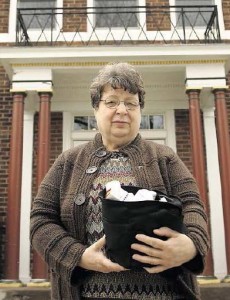By Susan Jaffe | December 22, 2014 | Kaiser Health News and also published in 
Starting next year, the government will offer some seniors enrolled in private Medicare Advantage insurance an opportunity to leave those plans if they lose their doctors or other health care providers.
Last year, thousands of seniors in at least 10 states were left stranded or assigned new doctors when insurers discontinued contracts with the physicians.  Medicare Advantage policies cover 16 million seniors and are an alternative to the government-run Medicare program. Medicare Advantage members can only get care from a network of providers under contract to participate in their plan. They must remain in their plans for the calendar year, with some rare exceptions, but losing their doctor has not been among the permitted reasons. [More from KHN] [More in USA Today]
Medicare Advantage policies cover 16 million seniors and are an alternative to the government-run Medicare program. Medicare Advantage members can only get care from a network of providers under contract to participate in their plan. They must remain in their plans for the calendar year, with some rare exceptions, but losing their doctor has not been among the permitted reasons. [More from KHN] [More in USA Today]
…
 which requires members to get treatment only from a network of health care providers. They cannot change plans during the year if their doctor leaves their network….
which requires members to get treatment only from a network of health care providers. They cannot change plans during the year if their doctor leaves their network…. 

 man Services Secretary Kathleen Sebelius. In January, a federal judge approved a settlement in which the government agreed that this “improvement standard” is not necessary to receive coverage.
man Services Secretary Kathleen Sebelius. In January, a federal judge approved a settlement in which the government agreed that this “improvement standard” is not necessary to receive coverage.
 better than others. Seniors have been reluctant to change plans, even if there are cheaper or better-rated alternatives, according to recent studies and seniors advocates. Beneficiaries also tend to stay with the same insurers: This year more than a third of those in Medicare Advantage plans, which provide medical and drug coverage, chose policies from just two insurers, UnitedHealthcare or Humana.
better than others. Seniors have been reluctant to change plans, even if there are cheaper or better-rated alternatives, according to recent studies and seniors advocates. Beneficiaries also tend to stay with the same insurers: This year more than a third of those in Medicare Advantage plans, which provide medical and drug coverage, chose policies from just two insurers, UnitedHealthcare or Humana.
 n., she could have bought a three-week supply. In South Florida, Pearl Beras, 85, of Boca Raton, Fla., said her hospital charged $71 for one blood pressure pill for which her neighborhood pharmacy charges 16 cents. Several other Medicare patients in Missouri were billed $18 for a single baby aspirin, said Ruth Dockins, a senior advocate at the Southeast Missouri Area Agency on Aging.
n., she could have bought a three-week supply. In South Florida, Pearl Beras, 85, of Boca Raton, Fla., said her hospital charged $71 for one blood pressure pill for which her neighborhood pharmacy charges 16 cents. Several other Medicare patients in Missouri were billed $18 for a single baby aspirin, said Ruth Dockins, a senior advocate at the Southeast Missouri Area Agency on Aging.

 enrolled in Medicare drug plans. Under new, tougher Medicare rules that took effect in January, private insurers that offer drug coverage must automatically enroll members who have at least $3,000 in total annual drug costs, take several drugs and have chronic health conditions such as diabetes, hypertension or heart disease.
enrolled in Medicare drug plans. Under new, tougher Medicare rules that took effect in January, private insurers that offer drug coverage must automatically enroll members who have at least $3,000 in total annual drug costs, take several drugs and have chronic health conditions such as diabetes, hypertension or heart disease.